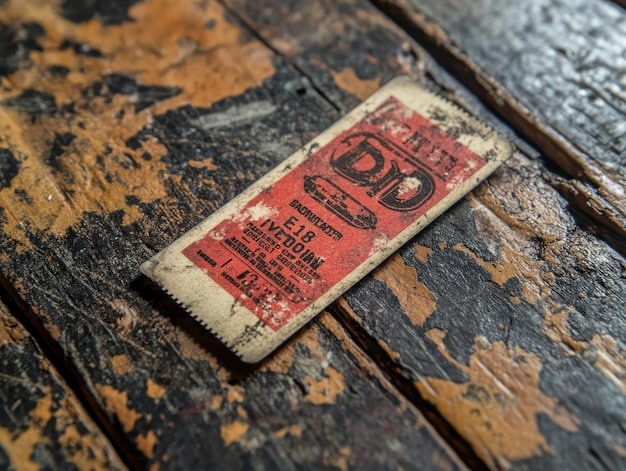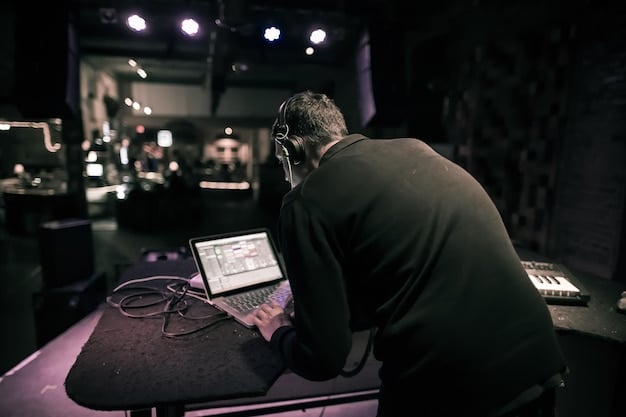Rock Band Comeback Tour in Jeopardy Due to Poor Ticket Sales

Rock Band’s Comeback Tour Faces Cancellation Rumors – Low Ticket Sales Blamed reports indicate the highly anticipated reunion tour is struggling with significantly low ticket sales, sparking concerns about potential cancellation and raising questions about the band’s current audience appeal.
The music world buzzed with excitement when a legendary rock band announced their comeback tour. However, recent reports suggest trouble is brewing, as the Rock Band’s Comeback Tour Faces Cancellation Rumors – Low Ticket Sales Blamed for the potential derailment.
Comeback Dreams Meet Harsh Reality
The initial announcement of the tour was met with nostalgia and enthusiasm from longtime fans. However, as tickets went on sale, a worrying trend emerged: sales were significantly lower than anticipated.
Initial Hype vs. Current Demand
The discrepancy between the initial hype and the actual ticket sales is what is causing concern. Could the band’s fanbase have diminished more than expected?
Several factors contribute to this situation:
- Ticket Pricing: High ticket prices could be deterring potential concertgoers.
- Market Saturation: The current concert market is crowded, with many artists touring simultaneously.
- Shifting Fanbase: The band’s core fanbase might have moved on, and attracting a new generation of fans is proving challenging.
Ultimately, if ticket sales don’t improve drastically and quickly, the tour’s viability and financial success may be in jeopardy.

The Economic Realities of Touring
Organizing a tour for a rock band is no small feat. There are a number of aspects involved in ensuring a rock band comeback such as production costs, venue rentals, staffing, and logistics expenses.
High Costs, Low Returns?
If tickets sold are not generating enough revenue to cover the costs then the tour is simply not feasible.
When revenue plummets, promoters of the tour face difficult issues like:
- Venue Contracts: Breaking venue contracts can result in significant financial loss.
- Production Costs: These costs are often non-refundable, even if a tour is canceled.
- Reputational Damage: A canceled tour can tarnish the band’s reputation and decrease the chances of future successful tours with high ticket sales.
Careful risk management is essential for both the band management and promoters in the tour industry.
Fan Reactions and Social Media Buzz
Fan reactions to the cancellation rumors have been mixed. While some fans expressed disappointment, others seemed less surprised.
Social Media Sentiment Analysis
Monitoring social media sentiment can provide valuable insights into the evolving public perception of the tour. Are fans still interested, or has the excitement faded?
Key areas of social interactions include:
- Hashtag Tracking: Monitor relevant hashtags to gauge the volume and sentiment of online conversations.
- Comment Analysis: Analyze comments on social media posts to understand the specific concerns and opinions of fans.
- Influencer Engagement: Track engagement and conversations driven by bands, band members, or other people on social media platforms, helping to pinpoint factors that have caused decreased sales.
For promoters and band members, monitoring social media can help highlight factors that need adjustment. Ultimately, it will assist with driving future ticket sales.
Expert Opinions and Industry Insights
Industry experts have weighed in on the situation, offering their perspectives on the potential reasons behind the low ticket sales.

Market Analysis: What Went Wrong?
Experts suggest that a combination of factors, including pricing strategies, marketing approaches, and shifting consumer preferences. The expert consensus is that there is no single reason for the low turn out.
The views of the experts are wide ranging:
- Pricing Too High: Some experts believe that the ticket prices are too high about comparable concerts.
- Marketing Missed Its Mark: Others think the marketing campaign failed to capture the attention of the desired audience.
- Overestimation of Nostalgia: It’s possible that the band or its management overestimated the nostalgia factor.
The industry must continue to analyze factors that affect turnout. What works for one music group, will not necessarily work for another.
Potential Scenarios and Future Paths
Several scenarios could play out in the coming weeks. The band and its management team have a number of options on how to deal with Rock Band’s Comeback Tour Faces Cancellation Rumors – Low Ticket Sales Blamed.
Exploring Alternative Strategies
The band may consider lowering ticket prices, offering promotional discounts, or re-strategizing their marketing efforts to boost sales. If sales don’t improve drastically then the band may have to consider their other options.
Full Cancellation vs. Scaled-Down Tour
The band could choose to cancel the tour entirely. This would be the scenario to avoid since it could involve heavy financial costs and also tarnish the band’s legacy.
The scaled-down tour might play in smaller venues, or just perform for a limited cities, ultimately limiting their financial risk.
Lessons Learned and the Future of Rock
The current situation serves as a valuable lesson for the music industry. While nostalgia can be a powerful attraction, it’s not always enough to guarantee success.
Adapting to Changing Times
The future of rock music depends on the ability of artist to adapt. Adaptability should be the center stage to marketing and product strategy.
Looking ahead, artist should be able to:
- Embrace New Technologies: Utilizing social media platforms and technology to reach wider audiences.
- Collaborate Across Genres: By working with artists from different genres to revitalize their music.
- Invest in Fan Engagement: Giving fans a chance to interact during shows could entice a higher turnout.
Ultimately, the rock music community is constantly in flux and will need to continue to adapt depending on factors that arise.
| Key Point | Brief Description |
|---|---|
| 📉 Low Ticket Sales | Significantly impacting potential tour profitability. |
| 💸 Economic Realities | Touring costs are high; low sales threaten financial viability. |
| 🗣️ Fan Reactions | Mixed, with disappointment and acceptance noted. |
| 🔮 Future Paths | Cancellation or scaled-down options are being considered. |
FAQ Section
▼
Several factors contribute to low ticket sales, including high prices, market saturation, and possibly a shrinking fanbase. It is hard to pinpoint one specific reason.
▼
They could lower ticket prices, increase marketing efforts, or even scale down the tour. Cancellation and potentially face contractual penalties is the worst option.
▼
Fan reactions are mixed, as some fans are happy they got to see the band perform for one last time while others are simply not surprised.
▼
Industry experts say there are several reasons, from high ticket prices to a shift in music sales. The combination of all issues makes the matter hard to address quickly.
▼
The band come embrace new technologies, collaborate with other artist across genres, and focus on in person fan engagement to drive ticket sales and hype around the band.
Conclusion
The unfolding story of this rock band’s comeback tour is a sobering reminder that success in the music industry is never guaranteed. While the allure of nostalgia can draw initial interest, it’s crucial to adapt to changing market conditions and fan expectations. Should the tour ultimately be canceled, it will signify not just the end of a reunion, but also a potentially valuable lesson for artists and promoters alike about the complexities of the modern music business.





